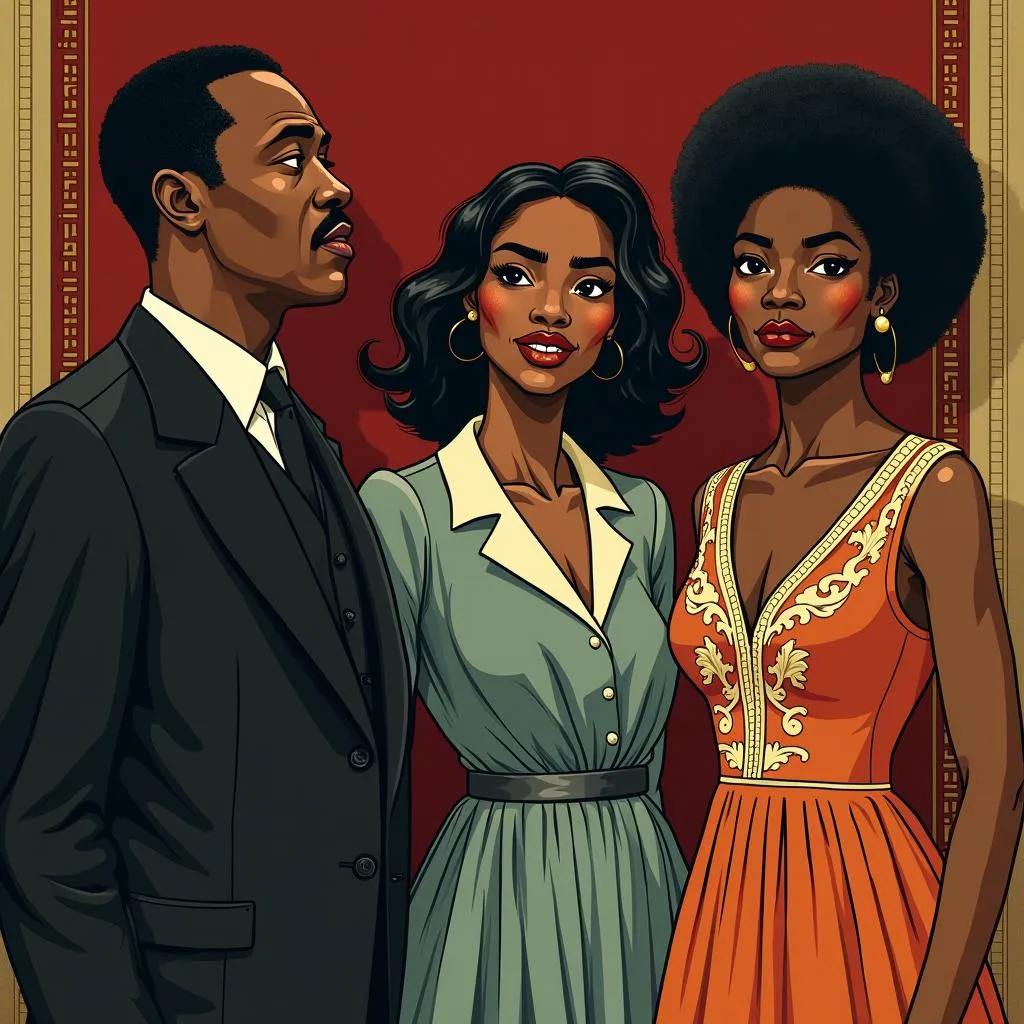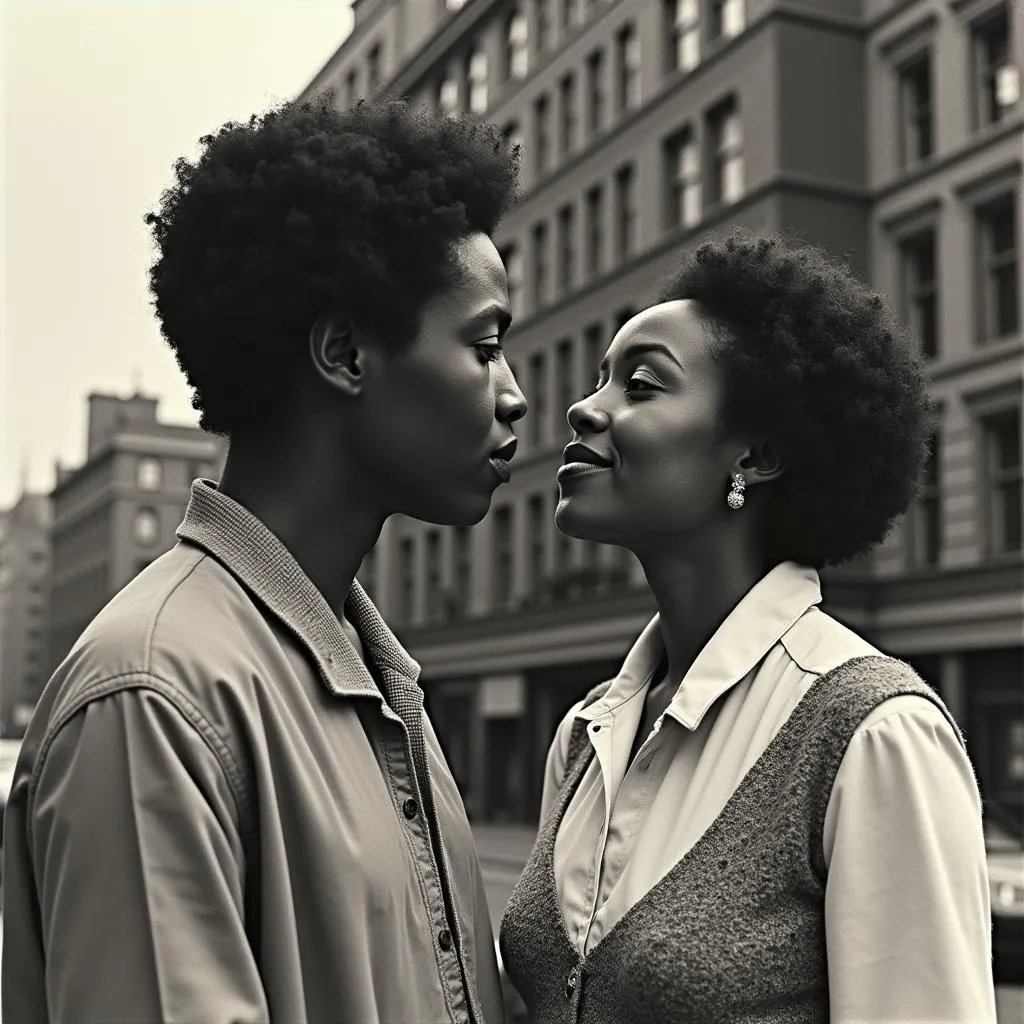20th Century African American Drama: A Journey of Empowerment and Artistic Expression
The 20th century witnessed a remarkable evolution in African American drama, marked by a powerful surge of artistic expression and a resolute pursuit of social justice. From the Harlem Renaissance to the Civil Rights Movement and beyond, Black playwrights skillfully wielded the power of storytelling to expose societal ills, celebrate Black culture, and champion the fight for equality. This era saw a profound shift in African American theatre, transitioning from a predominantly minstrel-based tradition to a dynamic force of artistic innovation and social commentary.
The Birth of a Movement: The Harlem Renaissance
The Harlem Renaissance, a cultural explosion that spanned the 1920s and 1930s, served as a crucial catalyst for the emergence of African American drama. This era saw a flourishing of Black artistic expression across various disciplines, including literature, music, and theatre. Playwrights like Langston Hughes, Zora Neale Hurston, and Lorraine Hansberry used their art to give voice to the Black experience, exploring themes of identity, racial discrimination, and the resilience of the Black community.
 African American Playwrights During The Harlem Renaissance
African American Playwrights During The Harlem Renaissance
The Civil Rights Era: A Catalyst for Social Change
The Civil Rights Movement of the 1950s and 1960s profoundly influenced African American drama, transforming it into a powerful tool for social activism. Playwrights like Lorraine Hansberry, James Baldwin, and August Wilson used their art to expose the injustices faced by Black Americans and advocate for social change. Lorraine Hansberry’s groundbreaking play “A Raisin in the Sun”, which premiered in 1959, tackled themes of racism and the aspirations of Black families in the face of adversity.
 The Civil Rights Movement and Its Impact on African American Drama
The Civil Rights Movement and Its Impact on African American Drama
The Legacy Continues: 21st Century and Beyond
The influence of 20th-century African American drama continues to resonate deeply into the 21st century. Contemporary playwrights like Lynn Nottage, Suzan-Lori Parks, and Tarell Alvin McCraney build upon the foundations laid by their predecessors, pushing the boundaries of theatrical expression and challenging traditional narratives. They explore a wide range of themes, including race, gender, identity, and the complexities of the Black experience in contemporary society.
Key Themes and Artistic Styles
20th-century African American drama is characterized by several recurring themes and artistic styles:
-
Race and Identity: Playwrights delved into the complexities of race and identity, exploring the impact of racism, segregation, and the constant struggle for self-definition.
-
Social Injustice: Many plays addressed issues of social injustice, exposing the systemic discrimination faced by Black Americans and advocating for equality and human rights.
-
Black Culture and Heritage: Playwrights celebrated Black culture and heritage, showcasing the richness and diversity of Black traditions, music, and language.
-
Family and Community: Family relationships, community bonds, and the role of tradition in shaping Black lives often served as central themes.
-
Spirituality and Religion: The importance of spirituality and religion in the Black community was frequently explored, reflecting the deep faith and resilience of Black people.
The Impact of African American Drama
20th-century African American drama had a profound impact on American theatre and society:
-
Amplified Black Voices: It provided a platform for Black voices and stories to be heard and celebrated, challenging the dominant narrative and fostering greater understanding of the Black experience.
-
Promoted Social Justice: It served as a powerful tool for social activism, raising awareness of racial injustices and advocating for equality and human rights.
-
Influenced American Theatre: It contributed significantly to the evolution of American theatre, introducing new themes, artistic styles, and perspectives.
-
Inspired Future Generations: It inspired future generations of Black artists, playwrights, and performers to continue pushing the boundaries of theatrical expression and advocating for social justice.
Frequently Asked Questions
Q: Who are some of the most influential African American playwrights of the 20th century?
A: Some of the most influential playwrights include Lorraine Hansberry, August Wilson, James Baldwin, Langston Hughes, and Zora Neale Hurston.
Q: What are some key themes explored in 20th-century African American drama?
A: Key themes include race and identity, social injustice, Black culture and heritage, family and community, and spirituality and religion.
Q: What is the significance of the Harlem Renaissance to African American theatre?
A: The Harlem Renaissance was a crucial catalyst for the emergence of African American drama, fostering a flourishing of Black artistic expression and providing a platform for Black voices to be heard.
Q: How did the Civil Rights Movement influence African American drama?
A: The Civil Rights Movement transformed African American drama into a powerful tool for social activism, as playwrights used their art to expose injustices and advocate for social change.
Q: What are some of the challenges and opportunities facing contemporary African American drama?
A: Contemporary playwrights face the challenge of maintaining the legacy of their predecessors while exploring new themes and artistic styles relevant to the complexities of the 21st century. They also have the opportunity to reach wider audiences and continue pushing the boundaries of theatrical expression.

